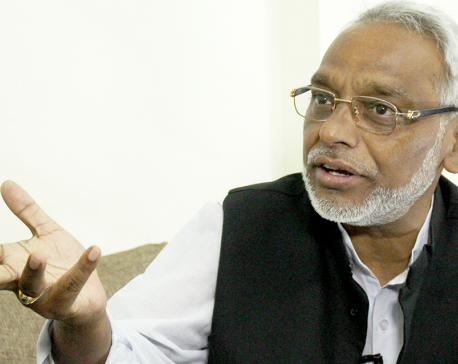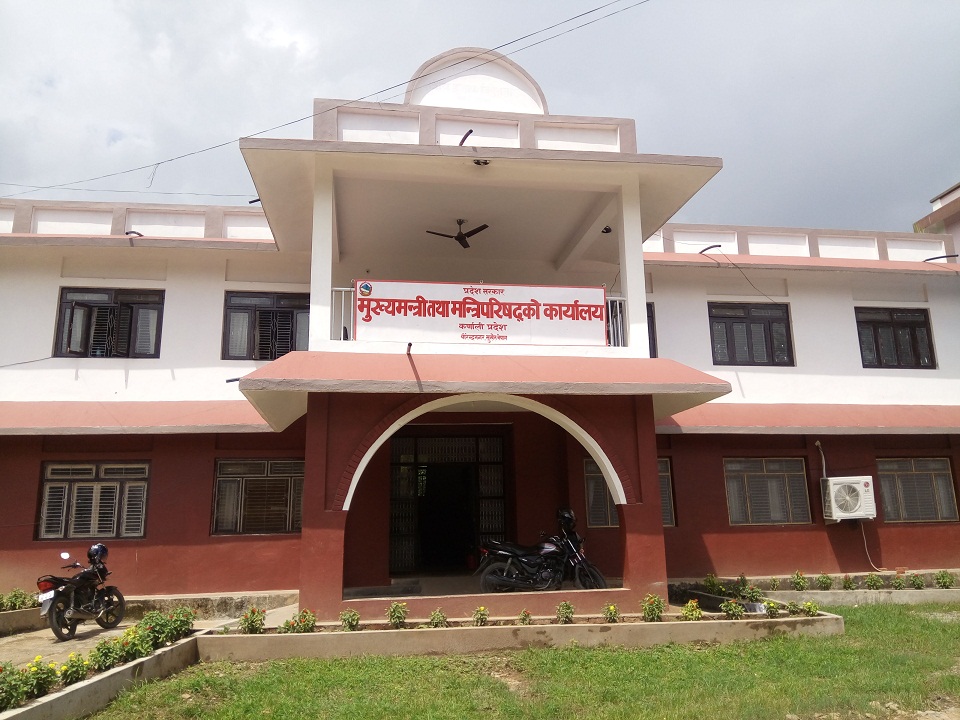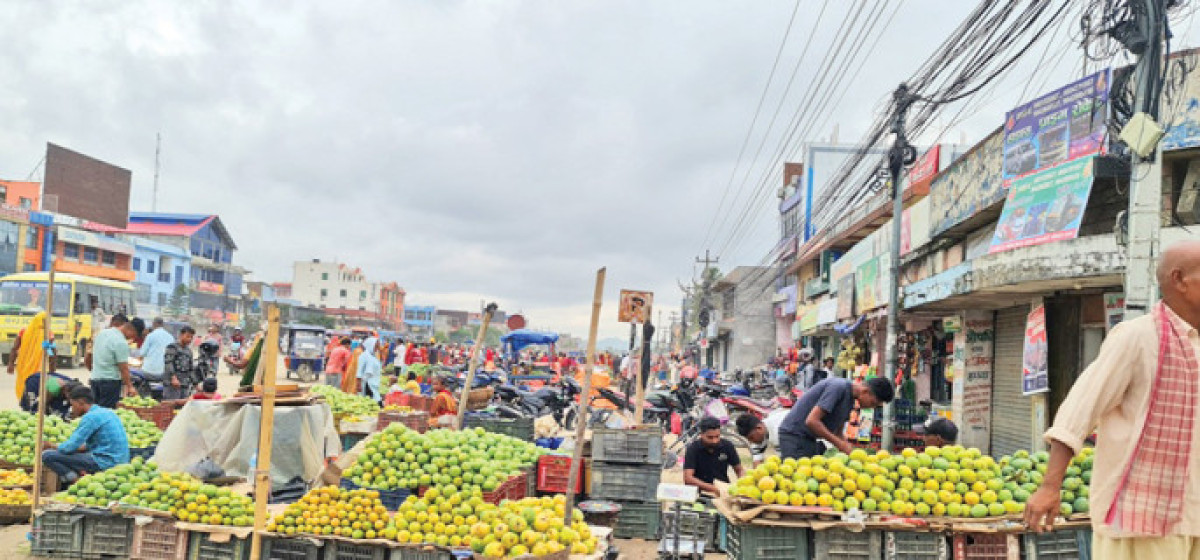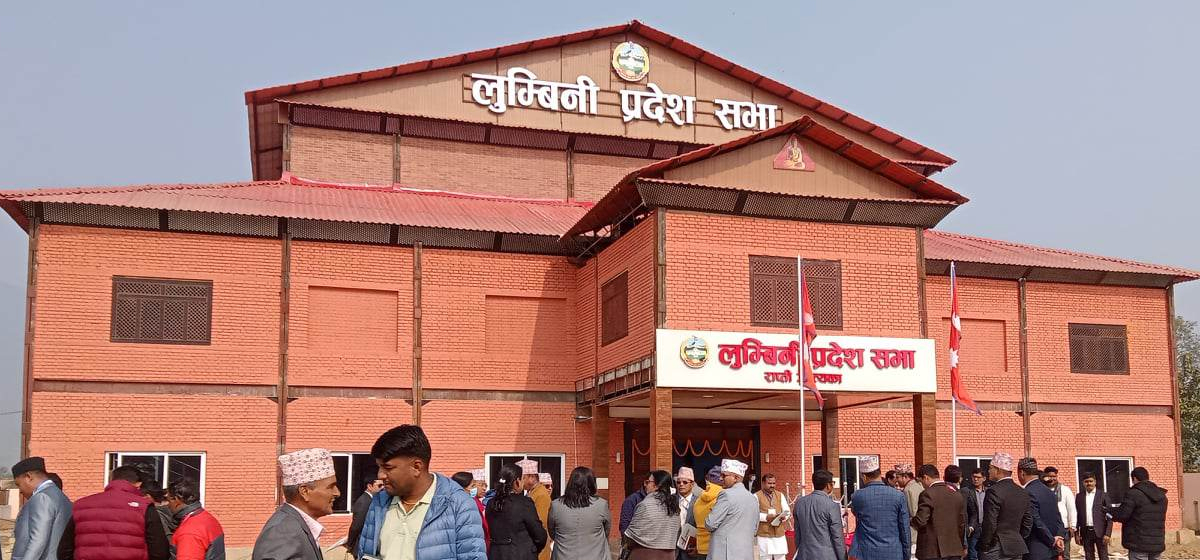
OR
For a man with a perceived reputation for being “overly pro-Indian”--as painted by a section of Kathmandu’s scribing community--until he first donned the mantle of prime minister in the autumn of 2016, Khadga Prasad Oli attracts wide attention and intense interest from audiences both at home and abroad, especially in the immediate neighbourhood, as he begins, today, his first foreign visit after taking that office for the second time.
Actions and stands taken at crucial times often make or mar a leader’s image and reputation. Oli emerged with extra points when dealing with the Indian-inspired economic blockade clamped on Nepal.
The Oli government’s stand during the trying days of its nine-month rule enabled the CPN-UML to record an impressive performance in the subsequent local polls, when most mainstream political parties, including the Nepali Congress and the Communist Party of Nepal (Maoist Center), together with the Madhes-based parties, were vociferously pitted against UML. Maoist Center suffered, in popular perception, the penalty of decamping from its partnership with a “fellow leftist” party to join an ideologically far different Nepali Congress.
Maoist supremo Pushpa Kamal Dahal and his comrades-in-arms, assessing the drastic fall in popular support during the local polls, panicked to the extent of joining hands in an electoral alliance with UML even while remaining conspicuously in the Sher Bahadur-led coalition cabinet.
Heads of government meet with full diplomatic bells, whistles and trumpets. Leaders of many developing nations make trips to foreign capitals, with their eyes on the publicity that is generated back home.
However, the show and the frills in full blast mask the hard bargaining and drive for extracting the most and the best, who scores with what argument and what chips are played. One of the subtle manifestations of diplomacy is discretion in pinstripes. When closed door sessions get down to brass tacks, the talks chart their course in deference to the proposals and counterproposals of the negotiating parties.
Competing agendas of different foreign forces come into play, particularly in economically weak countries facing multifarious problems such as Nepal.
India has traditionally pressed for unhindered strategic presence and dominance in Nepal, ie, with its eyes on Nepal’s defence, foreign and economic policies. The European Union wants this country to “appreciate”--in effect adopt--Western “values” while the United States since the 1950s, and more so in the new millennium, is keen on focusing on Tibetan refugees and the potential vulnerability of Tibet, the tempetingly soft underbelly of communist China, the World No 2 economy which the World Bank and its international peer agencies expect to overtake the US within the next two decades.
It is true that Nepalese prime ministers find returning home from any eventful visit to New Delhi unscathed a daunting task. A “sell-out” tag shadows many a prime minister. Aware of this, Oli and his advisors seem to include in the India policy a plank of not going for any major new initiative or project but for activating projects already agreed upon since ages. In this the prime minister is armed with a national consensus, endorsed unanimously by a meeting with former prime ministers. His determination is driven by the popular mandate his government currently enjoys.
Unimpeachable sources in government sound confident that New Delhi has “most probably changed its policy toward Nepal”, something attributed partly to the changed regional and international conditions but largely to the “unambiguous” stance taken by the prime minister on the national interest while also making a demonstration of defering to Delhi’s due concerns and interests.
The massive mandate with which the new Constitution of Nepal was proclaimed, followed by the widely-acclaimed tough stance taken by the Oli team two years ago and capped by the landslide majority the Left Alliance obtained in the recent general elections have led Indian intellectuals and New Delhi to conclude that their Nepal policy needs a refreshing revision. Nepal, they see, has developed the first effective signs of alternatives in the conduct of foreign policy and options for expanded cooperation with credible and reliable credentials. They also take note of the fact that the Left performed better than others, including the Madhes-based parties, in 17 of the 21 districts in the tarai.
Liberal democracies conform to the belief floated by the British in the 1940s that “nationalism will invariably lead to communism.” The UML-Maoist Center of late, echoing their new-found “nationalism” and cashing in on the recent election gains, have made some of the major aid-giving countries put their ears to the ground and keep eyes wide open for the steps to be taken by a communist cabinet elected by a democratic process that their own folks back home have defined and described as essential.
So far, Oli’s team has packaged the prime minister’s India visit with preparations down to details the like of which has not been seen following the post-2006 sweeping political changes. It seems to be following the dictum: Don’t move without a margin of equality-at least not inferiority.
“Friendship. Friendship. Friendship.” This is what Oli has been stressing to Indian visitors in connection with his three-day trip to India. He tells his close aides that as long as Nepal’s core interests are not compromised, “we should do our best to accommodate theirs as well.”
It is also of import that even as Oli held discussions with former premiers at his Baluwatar official residence Wednesday, his Indian counterpart Narendra Modi was advised by several Indian leaders not to interfere in the “internal affairs” of Nepal. This is a positive sign, given that it comes from some of those who were previously party to pressuring Nepal to be allowed to micro-manage her affairs.
Hence the current conditions call for according a cautious benefit of the previously persistent doubt for some positive pace toward a meaningfully new chapter in Nepal-India ties 21st century.
You May Like This

Benefit of doubt
Splits and mergers are common features of political parties in the developing world. Nepal is no exception ... Read More...

Flood victims benefit from Chinese-funded recovery program
KATHMANDU, March 27: Nearly 32,000 flood-affected households in seven districts of the tarai region received recovery packages worth US$ 4 million... Read More...

Oli’s patriotism, protest against India won’t benefit country: Mahato (Interview)
KATHMANDU, June 19: Chairman of Sadhbhawana Party Rajendra Mahato has said that they are waiting for meaningful talks with the... Read More...



Just In
- President Paudel approves mobilization of army personnel for by-elections security
- Bhajang and Ilam by-elections: 69 polling stations classified as ‘highly sensitive’
- Karnali CM Kandel secures vote of confidence
- National Youth Scientists Conference to be organized in Surkhet
- Rautahat traders call for extended night market hours amid summer heat
- Resignation of JSP minister rejected in Lumbini province
- Russia warns NATO nuclear facilities in Poland could become military target
- 16th Five Year Plan: Govt unveils 40 goals for prosperity (with full list)















Leave A Comment